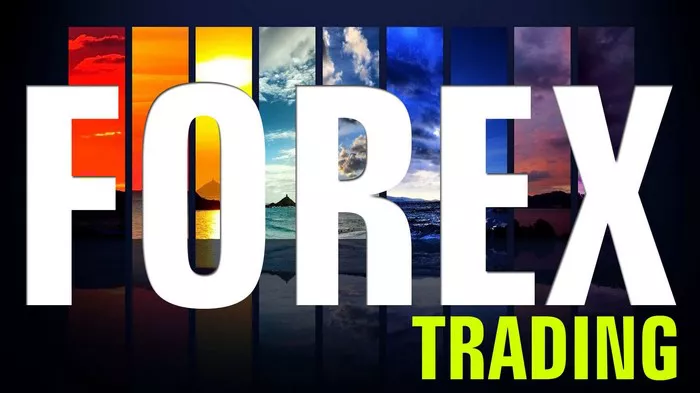In the vast and dynamic world of financial markets, there exists a segment that deals exclusively with the exchange of foreign currencies. This segment is known as the Foreign Exchange (Forex) market, and it is the largest and most liquid financial market globally. For individuals and entities seeking to participate in this market, opening a Forex account is the first crucial step. This article aims to provide a comprehensive understanding of what a Forex account is, its functions, types, benefits, risks, and the process of opening one.
Understanding the Forex Market
Before diving into the specifics of a Forex account, it’s essential to grasp the fundamentals of the Forex market. The Forex market, often abbreviated as FX, is a decentralized global market where currencies are traded. Unlike stock markets, which are usually confined to specific geographical locations and have designated trading hours, the Forex market operates 24 hours a day, five days a week, across various time zones.
The primary participants in the Forex market include banks, central banks, hedge funds, multinational corporations, and retail investors. Transactions in the Forex market are typically conducted through brokers or dealers, who facilitate the buying and selling of currencies.
The value of one currency relative to another is expressed as an exchange rate. For instance, the exchange rate between the US dollar (USD) and the Euro (EUR) might be 1.10, meaning one Euro is equivalent to 1.10 US dollars. These exchange rates fluctuate constantly due to various factors such as economic news, geopolitical events, and central bank policies.
What Is a Forex Account?
A Forex account is a type of financial account specifically designed for trading currencies on the Forex market. It allows traders to buy and sell different currency pairs in an attempt to profit from the fluctuations in exchange rates.
1. Types of Forex Accounts
Forex accounts can be broadly classified into two main categories: demo accounts and live accounts.
Demo Accounts
A demo account, also known as a practice account, is a risk-free way to experience Forex trading. It provides traders with a simulated trading environment that mirrors real-world market conditions. Demo accounts use virtual currency, meaning any losses or gains incurred during trading do not affect real financial resources.
Demo accounts are ideal for beginners who want to familiarize themselves with the Forex market, trading platforms, and various trading strategies without risking their capital. They offer a valuable learning tool, allowing traders to test their skills and make mistakes in a safe environment before venturing into live trading.
Live Accounts
A live account, on the other hand, involves real money transactions. Traders deposit their own funds into this account, which can then be used to buy and sell currencies on the Forex market. Profits and losses incurred during live trading directly impact the account balance.
Live accounts can further be categorized based on various factors such as account size, trading conditions, and the type of trader (retail or institutional). For instance, retail Forex accounts are designed for individual traders, while institutional accounts cater to larger financial institutions like banks and hedge funds.
2. Key Features of a Forex Account
Regardless of the type, all Forex accounts share several common features that are crucial for successful trading:
Leverage
Leverage is a key feature of Forex accounts that allows traders to control larger positions with a relatively small amount of capital. Leverage can amplify both profits and losses, making it a double-edged sword. For instance, with a leverage ratio of 1:100, a trader can open a position with 100inmarginthatcontrols10,000 worth of currency.
While leverage offers the potential for greater returns, it also increases the risk of significant losses. Therefore, it’s crucial for traders to understand the implications of leverage and manage their risk accordingly.
Margin
Margin is the amount of money required to open a leveraged position. It acts as a deposit or collateral that the broker holds to ensure the trader can cover potential losses. Margin requirements can vary depending on the currency pair, leverage ratio, and broker.
Spread
The spread is the difference between the buy (ask) and sell (bid) prices of a currency pair. It represents the cost of trading and is one of the main sources of income for Forex brokers. The tighter the spread, the lower the trading costs, which can be beneficial for traders.
Trading Platforms
Forex accounts are typically accessed through trading platforms, which provide traders with real-time market data, charting tools, and order execution capabilities. Trading platforms can be desktop-based, web-based, or mobile apps, allowing traders to access their accounts and execute trades from anywhere.
Some popular trading platforms include MetaTrader 4 (MT4), MetaTrader 5 (MT5), and cTrader. These platforms offer a wide range of features, including automated trading, advanced charting tools, and the ability to integrate with third-party trading signals and strategies.
Benefits of a Forex Account
Opening a Forex account offers several benefits that make it an attractive option for traders:
1. Access to Global Markets
With a Forex account, traders can access the largest and most liquid financial market in the world. This provides opportunities to diversify investments and trade currencies from different regions and economies.
2. High Liquidity
The Forex market is highly liquid, meaning there are always buyers and sellers available to trade. This ensures that traders can execute their orders quickly and efficiently, even during volatile market conditions.
3. 24/5 Trading Hours
The Forex market operates 24 hours a day, five days a week, across various time zones. This allows traders to trade at any time that suits them, whether during the day or night.
4. Leverage and Margin Trading
Leverage and margin trading enable traders to control larger positions with a smaller amount of capital. This can amplify profits but also increases the risk of losses. Proper risk management is crucial when trading with leverage.
5. Low Costs and Commissions
Compared to other financial markets, the costs of trading in the Forex market are relatively low. Brokers typically charge a small commission or spread, which can be more competitive than traditional stock or commodity trading fees.
Risks Associated with Forex Accounts
Despite the benefits, trading in the Forex market involves several risks that traders must be aware of:
1. Volatility
Currency prices are highly volatile and can fluctuate rapidly due to various factors such as economic news, geopolitical events, and central bank policies. This volatility can lead to significant losses if traders are not well-prepared or properly managed their risk.
2. Leverage Risk
Leverage can amplify both profits and losses. While it offers the potential for greater returns, it also increases the risk of significant losses. Traders must be cautious when using leverage and ensure they have sufficient risk management strategies in place.
3. Counterparty Risk
In Forex trading, traders are exposed to counterparty risk, which is the risk that the other party to a trade may default on their obligations. This risk is mitigated by trading through regulated and reputable brokers.
4. Scams and Fraud
The Forex market is susceptible to scams and fraud, including fake brokers, ponzi schemes, and unrealistic profit promises. Traders must conduct thorough research and only trade through regulated and reputable brokers to avoid falling prey to these scams.
Opening a Forex Account
Opening a Forex account involves several steps, including choosing a broker, completing the application process, and funding the account. Here’s a detailed breakdown of the process:
Step 1: Choose a Broker
Choosing a broker is the first and most crucial step in opening a Forex account. Traders should look for brokers that are regulated by reputable financial authorities such as the Commodity Futures Trading Commission (CFTC) in the United States, the Financial Conduct Authority (FCA) in the United Kingdom, or the Cyprus Securities and Exchange Commission (CySEC) in Cyprus.
In addition to regulation, traders should consider other factors such as trading platforms, leverage ratios, spreads, customer support, and deposit and withdrawal options. It’s essential to conduct thorough research and read reviews from other traders before choosing a broker.
Step 2: Complete the Application Process
Once a broker is selected, traders must complete the application process to open an account. This typically involves providing personal information such as name, address, and contact details. Traders may also be required to submit proof of identity and residence, such as a passport or utility bill.
Step 3: Fund the Account
After the application is approved, traders can fund their account using various methods such as bank transfers, credit/debit cards, or electronic wallets. The funding process can vary depending on the broker and the chosen payment method. Traders should ensure they understand the fees and processing times associated with each payment method.
Step 4: Start Trading
Once the account is funded, traders can start trading on the Forex market. They can access their accounts through trading platforms, view real-time market data, place orders, and manage their positions. It’s essential for traders to understand the basics of Forex trading, including technical analysis, fundamental analysis, and risk management strategies, before starting to trade.
Conclusion
In conclusion, a Forex account is a financial account designed for trading currencies on the Forex market. It offers access to global markets, high liquidity, 24/5 trading hours, leverage, and low costs. However, trading in the Forex market involves significant risks, including volatility, leverage risk, counterparty risk, and scams and fraud.
Related topics:
































